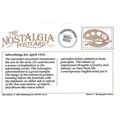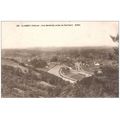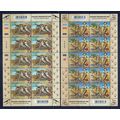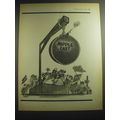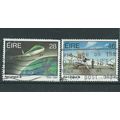Dortmund, North Rhine Westphalia, Germany - aerial view postcard 1959
- Condition : Used
- Dispatch : 2 Days
- Brand : None
- ID# : 114201589
- Quantity : 1 item
- Views : 6215
- Location : United Kingdom

- Seller : justthebook (+1704)
- Barcode : None
- Start : Wed 17 Jul 2013 18:36:40 (EDT)
- Close : Run Until Sold
- Remain : Run Until Sold
Checks/Cheques
 for 1 item(s) edit
for 1 item(s) edit
Shipping Calculator
More Listings from This Seller view all
Seller's Description
- Postcard
- Picture / Image: Dortmund, North Rhine-Westphalia, Germany
- Publisher: 60 Jahre Cramers
- Postally used: yes
- Stamp: removed
- Postmark(s): 1959 slogan postmarkj
- Sent to: Summer House Drive, Dartford, Kent, England
- Notes / condition:
Please ask if you need any other information and I will do the best I can to answer.
Image may be low res for illustrative purposes - if you need a higher definition image then please contact me and I may be able to send one.
------------------------------------------------
Postage & Packing:
UK (incl. IOM, CI & BFPO): 99p
Europe: £1.60
Rest of world (inc. USA etc): £2.75
No additional charges for more than one postcard. You can buy as many postcards from me as you like and you will just pay the fee above once. (If buying postcards with other things such as books, please contact or wait for invoice before paying).
Payment Methods:
UK - PayPal, Cheque (from UK bank) or postal order
Outside UK: PayPal ONLY (unless otherwise stated) please. NO non-UK currency checks or money orders (sorry).
NOTE: All postcards are sent in brand new stiffened envelopes which I have bought for the task. These are specially made to protect postcards and you may be able to re-use them. In addition there are other costs to sending so the above charge is not just for the stamp!
I will give a full refund if you are not fully satisfied with the postcard.
----------------------------------------------
Text from the free encyclopedia WIKIPEDIA may appear below to give a little background information (internal links may not work) :
*************
Dortmund (['d???tm?nt] ( listen); Low German: Düörpm; Latin: Tremonia) is a city in Germany. It is located in the Bundesland of North Rhine-Westphalia. Its population of 571,403 (2011) makes it the 8th largest city in Germany. Dortmund is the largest city in the Ruhr valley, an urban area with some 5.1 million (2011) inhabitants which is the largest urban agglomeration in Germany. Dortmund is also a part of the larger Rhine-Ruhr metropolitan region of more than 12 million people.
The river Ruhr flows south of the city, and the small river Emscher flows through the municipal area. The Dortmund-Ems Canal also terminates in the Dortmund Port, which is the largest European canal port, and links Dortmund to the North Sea.
Dortmund is known as Westphalia's ""green metropolis"". Nearly half the municipal territory consists of waterways, woodland, agriculture and green spaces with spacious parks such as Westfalenpark and the Rombergpark. This contrasts with nearly a hundred years of extensive coal mining and steel milling within the city limits.
A small village at the location of Dortmund was mentioned in official documents from 880 to 885 as Throtmanni. After it was destroyed by a fire, the Holy Roman Emperor Frederick I (Barbarossa) had the town rebuilt in 1152 and resided there for two years. It became an Imperial Free City in 1220. During that century, it was the ""chief city"" of the Rhine, Westphalia, the Netherlands Circle of the Hanseatic League.
After 1320, the city appeared in writing as ""Dorpmunde"", and the 1661 earthquake collapsed the Reinoldikirche. Within the Prussian Province of Westphalia, Dortmund was a district seat within Regierungsbezirk Arnsberg until 1875, after which it was an urban district within the region. During the industrialisation of Prussia, Dortmund became a major centre for coal and steel.
In 1920, Dortmund was one of the centres for resistance to the Kapp Putsch - a right military coup launched against the Social Democratic government. Radical workers formed a Red Army who fought the freikorps units involved in the coup.
Under Nazi Germany, the synagogue was destroyed in 1938. Also, the Aplerbeck Hospital in Dortmund transferred mentally and/or physically disabled patients for euthanasia at the Hadamar mental hospital as part of the Action T4 (an additional 229 children were killed in the ""Children's Specialist Department"", which was transferred from Marburg in 1941). Dortmund bombing targets of the Oil Campaign of World War II included Hoesch-Westfalenhütte AG, the ""Hoesch-Benzin GmbH"" synthetic oil plant, and the Zeche Hansa coking plant;[2] and bombing destroyed about 66% of the Dortmund homes[3] and about 98% of the inner city area. The code word Dortmund was radioed to initiate the 1941 Operation Barbarossa campaign against the Soviet Union.
The Allied ground advance into Germany reached Dortmund in April 1945. The US 95th Infantry Division, attacked the city on 12 April 1945 against a spirited German defense. The division, assisted by close air support, advanced through the ruins in urban combat and completed its capture on 13 April 1945.[4]
Post-war, buildings such as the Reinoldikirche and Marienkirche (churches) were restored/rebuilt, and extensive parks and gardens were laid out. The LWL-Industriemuseum began in 1969,[5] and the city subsequently became a centre for hi-tech industry.
type=real photographic (rp)
theme=topographical: rest of the world
sub-theme=europe
county/ country=germany
number of items=single
period=1945 - present
postage condition=posted
Listing Information
| Listing Type | Gallery Listing |
| Listing ID# | 114201589 |
| Start Time | Wed 17 Jul 2013 18:36:40 (EDT) |
| Close Time | Run Until Sold |
| Starting Bid | Fixed Price (no bidding) |
| Item Condition | Used |
| Bids | 0 |
| Views | 6215 |
| Dispatch Time | 2 Days |
| Quantity | 1 |
| Location | United Kingdom |
| Auto Extend | No |











